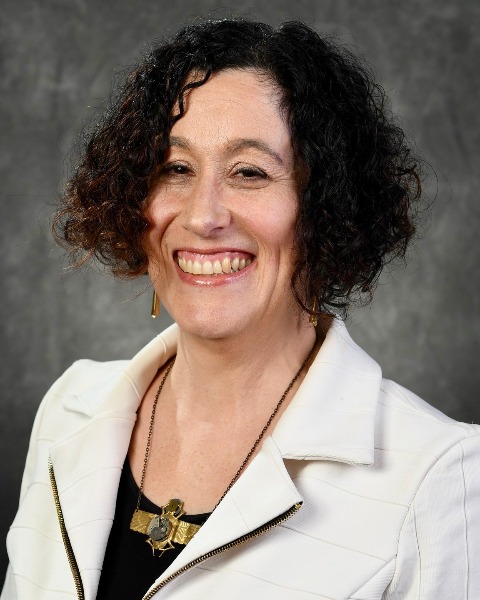LGBTQ+
Symposium 119 - Prospective effects of minority stress on health among sexual and gender minority populations: Exploring factors that buffer and exacerbate effects of minority stress
Level of Familiarity: All
Recommended Readings: Hatzenbuehler, M. L. (2009). How does sexual minority stigma “get under the skin”? A psychological mediation framework. Psychological bulletin, 135(5), 707., Meyer, I. H. (2003). Prejudice, social stress, and mental health in lesbian, gay, and bisexual populations: conceptual issues and research evidence. Psychological bulletin, 129(5), 674., Flentje, A., Heck, N. C., Brennan, J. M., & Meyer, I. H. (2020). The relationship between minority stress and biological outcomes: A systematic review. Journal of Behavioral Medicine, 43, 673-694., ,
-
CD
Christina Dyar, Ph.D. (she/her/hers)
Assistant Professor
The Ohio State University
Columbus, Ohio, United States -

Debra Kaysen, ABPP, Ph.D. (she/her/hers)
Professor
Stanford University
Stanford, California, United States -
EM
Ethan Mereish, Ph.D. (he/him/his)
Associate Professor
University of Maryland, College Park
College Park, Maryland, United States -

Ava Fergerson, M.S. (she/they)
The University of Southern Mississippi
Hattiesburg, Mississippi, United States -
AG
Anna Gilmour, Ph.D. (she/her/hers)
Rosalind Franklin University of Medicine and Science
Denver, Colorado, United States -
CD
Christina Dyar, Ph.D. (she/her/hers)
Assistant Professor
The Ohio State University
Columbus, Ohio, United States -
NK
Neda Kharrazi, Psy.D. (she/her/hers)
Stanford University
Stanford, California, United States
Chair(s)
Discussant(s)
Presenter(s)
Several longitudinal studies have now documented concurrent and prospective associations between minority stress and anxious/depressed affect among sexual and gender minorities (SGM). However, few have examined factors that may buffer or exacerbate these effects and the exploration of prospective effects of minority stress on health outcomes outside of internalizing symptomology and substance use is lacking. This symposium aims to address these gaps. Presenters will discuss groundbreaking research identifying factors that modify effects of minority stress on mental health at the daily level and by exploring longer-term effects of severe minority stress experiences (i.e., sexual assault) on understudied outcomes (i.e., pregnancy, miscarriage, abortion).
The first three talks will describe daily diary studies examining a range of factors that may buffer associations between minority stress and mental health at the daily level. Among BIPOC (Black, Indigenous, and people of color) SGM, Fergerson examines SGM community connectedness and ethnic identity as buffers of associations between minority stress and depressive symptoms at the daily level. Mereish examines the protective roles of general social support and SGM affirmative support in daily associations between minority stress, non-suicidal self-injury, and suicidal ideation among SGM adolescents. Among bi+ cisgender women, Gilmore examines whether partner responsiveness may buffer the effects of bi+ microaggressions on anxious/depressed affect and internalized bi+ stigma. Together, these three studies substantially advance our understanding of potential protective factors buffering daily effects of minority stress on mental health and affect, highlighting potential protective factors in a range of domains.
The fourth talk examines whether chronic minority stress exposure amplifies the effects of an acute minority stress event (i.e., a microaggression) on anxious and depressed affect. Results highlight that minority stress has a cumulative effect on mental health and increases the impact of future experiences on minority stress.
Finally, the fifth talk broadens this symposium to include longer-term prospective effects, more severe minority stressors, and more diverse health outcomes. Specifically, Kharazzi examines the effects of sexual assault and the attribution of sexual assault to one’s sexual orientation on subsequent pregnancy, miscarriage, and abortion among sexual minority women – a topic that has been neglected by prior work.
Together, these talks highlight important protective factors that can be targeted by future interventions, the potential snowballing effects of minority stress experiences on mental health, and unexplored but critical impact of sexual assault on reproductive health and decision making among sexual minority women.
Learning Objectives:
- Present an overview of the current literature linking minority stress to mental health at the daily level.
- Present evidence for factors that may buffer or exacerbate the effects of minority stress on mental health at the daily level.
- Describe potential effects of sexual assault victimization on reproductive health and decision making among sexual minority women.
- Increase understanding of the strengths of prospective longitudinal evidence.
- Increase awareness of potential individual-level differences in the effects of minority stress at the daily level.
Presentations:
-
8:30 AM - 10:00 AM EST(SYM 119) Daily Associations Among Oppression-based Stressors, General and Affirmative Social Supports, Suicide Ideation, and Non-suicidal Self-injury Ideation Among Sexual and Gender Minority Adolescents
Speaker: Ethan H. Mereish, Ph.D. (he/him/his) – University of Maryland, College Park
Co-author: Hyemin Lee, PhD (she/her/hers) – University of Maryland College Park
Co-author: Arushee Bhoja, B.A. (she/her/hers) – University of Maryland, College Park
Co-author: Jessica R. Abramson, B.A. (she/her/hers) – University of Maryland, College Park
Co-author: Jessica R. Peters, Ph.D. – Brown University
Co-author: Shirley Yen, Ph.D. (she/her/hers) – Harvard Medical School
-
8:30 AM - 10:00 AM EST(SYM 119) Minority Stress and Depressive Symptoms Among a Sample of BIPOC SGM Adults: The Role of SGM Community Connectedness and Ethnic Identity
Speaker: Ava K. Fergerson, M.S. (she/they) – The University of Southern Mississippi
Co-author: Billy Caceres, PhD – Columbia University School of Nursing
Co-author: Joseph Belloir, PhD, MSN, RN, PMHNP-BC – Columbia University
Co-author: Ipek Ensari, PhD – Icahn School of Medicine at Mount Sinai
Co-author: Emily Cordova, MA – University of Southern Mississippi
Co-author: Kasey Jackman, PhD, RN, PMHNP-BC, FAAN – Columbia University School of Nursing
-
8:30 AM - 10:00 AM EST(SYM 119) Do Romantic Relationship Factors Buffer the Negative Effect of Binegative Stress on Mental Health Among Bisexual Women?
Speaker: Anna L. Gilmour, Ph.D. (she/her/hers) – Rosalind Franklin University of Medicine and Science
Co-author: Mark Whisman, PhD (he/him/his) – University of Colorado at Boulder
Co-author: Sarah Whitton, PhD – University of Cincinnati
-
8:30 AM - 10:00 AM EST(SYM 119) Chronic Minority Stress Exposure Exacerbates Daily Associations Between Microaggressions and Anxious/depressed Affect
Speaker: Christina Dyar, Ph.D. (she/her/hers) – The Ohio State University
-
8:30 AM - 10:00 AM EST(SYM 119) The Impact of Sexual Assault Severity on Pregnancy Outcomes Among Sexual Minority Women
Speaker: Neda Kharrazi, Psy.D. (she/her/hers) – Stanford University
Co-author: Christina Dyar, Ph.D. (she/her/hers) – The Ohio State University
Co-author: Debra Kaysen, ABPP, Ph.D. (she/her/hers) – Stanford University

.png)
